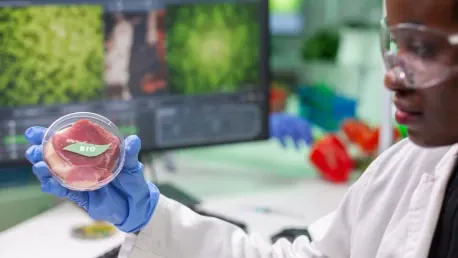The Institute of Food Technologists (IFT) has recently launched an innovative “Fundamentals of Food Science Course,” aiming to cater to the educational needs of diverse professionals in the food industry. The course is meticulously designed for busy professionals transitioning into the food sector, new entrants seeking essential foundational knowledge, and seasoned professionals aspiring to broaden their expertise. It provides comprehensive coverage of pivotal concepts in food chemistry, microbiology, and engineering, which are crucial for addressing food safety and quality issues effectively. Furthermore, participants will gain expertise in navigating complex regulatory environments, using sensory evaluation for product development, and understanding the nuances of food packaging and allergen management. The coursework is delivered through a blend of expert-led videos, interactive modules, and real-world case studies, enabling learners to acquire practical and actionable insights.
Key Components of the Course
The Fundamentals of Food Science Course offers an extensive curriculum, addressing essential topics in food chemistry, microbiology, and engineering. Food chemistry helps participants understand the molecular properties of food components and their interactions, which are vital for developing nutritious and safe food products. Microbiology focuses on identifying and managing pathogenic microorganisms to prevent foodborne illnesses. On the other hand, engineering principles are integrated to solve various practical problems in food processing, packaging, and preservation. These three pillars form the backbone of the course, ensuring participants are equipped with a holistic understanding of food science.
The course goes beyond theoretical knowledge by including practical applications that address real-world challenges. Participants are exposed to regulatory frameworks that govern food safety and quality, helping them navigate the complex landscape of food laws and standards. Sensory evaluation, another critical component of the course, is essential for product development as it involves assessing food products’ taste, aroma, and texture to meet consumer preferences. The course also delves into food packaging techniques, highlighting materials and methods that ensure product safety and longevity. Finally, allergen management is covered comprehensively, providing tools and strategies to identify and control allergens, a crucial aspect for protecting consumer health and meeting regulatory requirements.
Learning Tools and Methodology
A key strength of the course is its use of diverse learning tools, which include expert-led videos, interactive modules, and real-world case studies. The expert-led videos feature seasoned professionals who offer in-depth insights into specific food science topics. These videos serve not just as educational content but also as a source of inspiration, demonstrating the practical implications of theoretical knowledge. Interactive modules facilitate hands-on learning, allowing participants to engage directly with the material and apply what they have learned in real-time scenarios. This interactive approach ensures that the participants can retain information more effectively and apply it in their professional settings.
Real-world case studies further enrich the learning experience by providing examples of how theoretical concepts are applied to solve actual industry challenges. Through these case studies, participants can explore various problems and solutions, gaining a deeper understanding of the complexities within the food sector. They can also learn from the successes and failures of existing companies, offering a more rounded perspective on how to tackle similar challenges in their roles. Additionally, these real-world applications make the course more engaging and relatable, motivating participants to integrate these strategies into their daily operations.
Broader Impact on the Food Industry
Bryan Hitchcock, IFT’s Chief Science and Technology Officer, has emphasized the transformative potential of this course, particularly in building a more adept and skilled workforce. By focusing on fundamental and applied science, the course prepares professionals to tackle complex industry challenges innovatively and efficiently. Organizations stand to benefit significantly by licensing this course alongside other specialized online courses such as the Product Development Bootcamp and Demystifying Traceability. These offerings collectively aim to foster innovation and professional growth with minimal time and financial investment, making them highly cost-effective solutions for workforce development.
IFT, a globally recognized nonprofit with over 11,000 members hailing from more than 90 countries, has a long-standing commitment to advancing the science of food. Since its inception in 1939, the organization has brought together experts from academia, government, and industry to address critical challenges facing the food sector. By offering this new course, IFT aims to ensure that its members, and the broader professional community, have access to the latest resources and knowledge. This effort is geared toward innovating and sustaining a safe, nutritious, and accessible global food supply, fulfilling IFT’s mission to improve lives through food science.
Conclusion
One of the standout features of the course is its use of varied learning tools, which include expert-led videos, interactive modules, and real-world case studies. The videos showcase seasoned professionals offering deep insights into specific food science topics. These videos don’t just educate but also inspire, showcasing the practical implications of theoretical concepts. The interactive modules promote hands-on learning, enabling participants to engage directly with the material and apply their newfound knowledge in real-time scenarios. This interactive method ensures participants retain information more effectively and can use it in their professional environments.
Real-world case studies further enhance the learning experience by providing examples of how theoretical concepts are used to address actual industry challenges. These case studies let participants explore different problems and solutions, deepening their understanding of the food sector’s complexities. Participants can learn from the successes and failures of existing companies, gaining a well-rounded perspective on tackling similar challenges in their roles. Additionally, these real-world applications make the course more engaging and relevant, motivating participants to incorporate these strategies into their daily operations.









